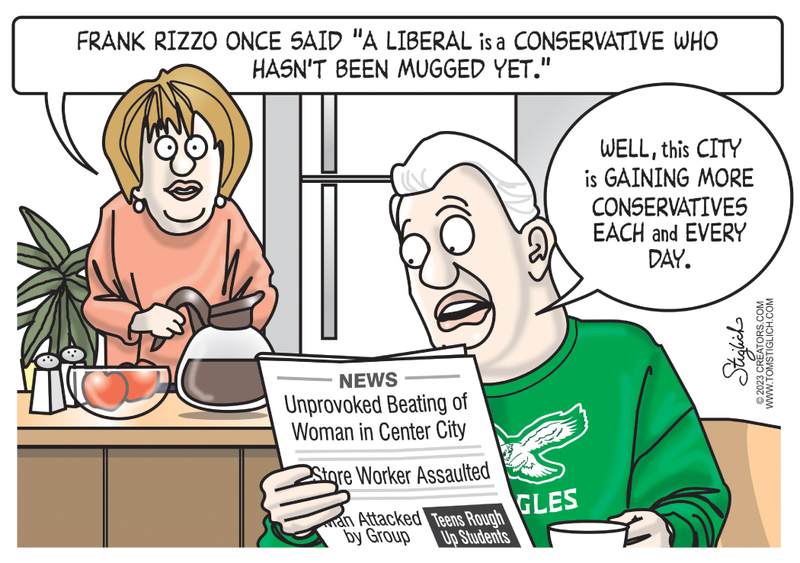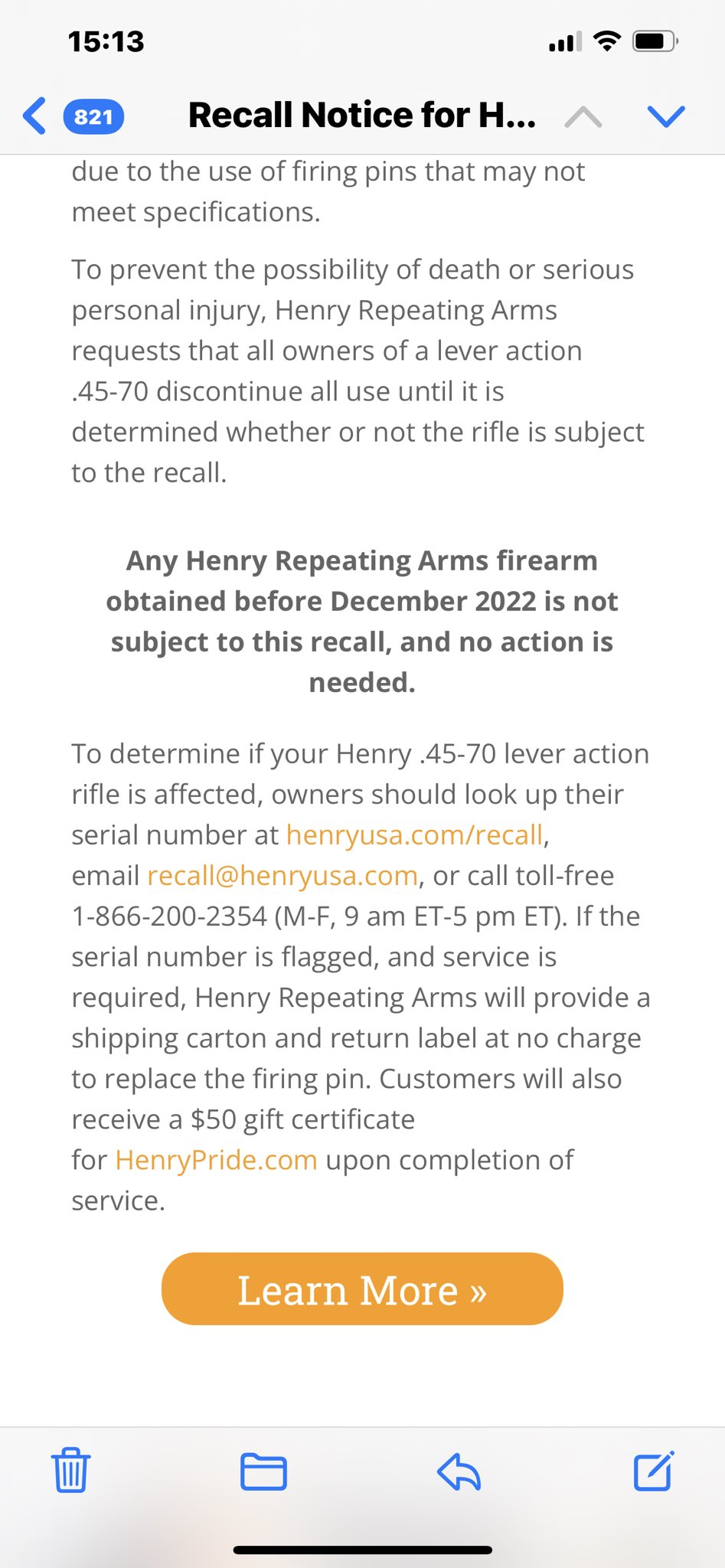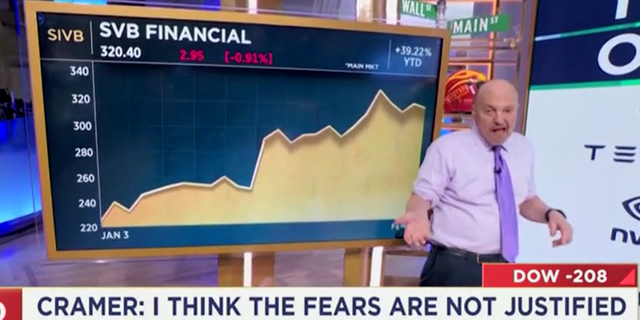
Opponents, Anti-Gunners Horrified as Constitutional Carry Looks Inevitable in Florida.
Whether it’s called constitutional carry, permitless carry or unlicensed concealed carry — which is probably the most accurate — the fact that soon millions of Floridians will no longer need a permission slip from the government to defend themselves has critics frothing at the mouth.
It’s going to happen, and there’s nothing they can do about it – that’s the bottom line.
They’re powerless to stop the massive restoration of our civil rights, regardless of how hard they whine or how absurd their prognostications of impending doom become. Florida Gov. Ron DeSantis has promised to sign the bill, and leaders in the House and Senate – where Republicans enjoy super-majorities – have promised to put a bill on his desk.
No one is taking the news harder than Frank Cerabino, a columnist for The Palm Beach Post who has enjoyed ridiculing guns, gun owners and civil rights for more than 30 years. As the bill progressed through the legislature, this angry little toad of a man has become positively deranged.
He’s lost what little sanity he once had, and that was never much. Cerabino’s March 7 column, which was titled “The ‘constitutional carry’ lie and why gun advocates don’t love the latest Florida bill,” shows just how toxic his pent-up why-won’t-they-listen-to-me! anger has become.
In his column, Cerabino describes constitutional carry as “political fiction,” and then he completely loses his damn mind.
“‘Constitutional carry’ is like ‘legitimate rape.’ It doesn’t exist,” he actually wrote.
No, Frank, nothing is like rape – nothing – and you should know that. To compare rape to anything is repugnant, morally wrong and massively offensive. It trivializes the horrors sexual assault survivors struggle to live with every single day. It defies belief that this disrespectful and hurtful comparison was actually published by a daily newspaper.
In another tangled line, Cerabino showcases his ignorance of the law, rifles and ballistics.
“Open carry would also allow them to walk around in public with weapons too big to conceal, such as military-style mass casualty weapons like the AR-15, which fires projectiles capable of liquifying body organs and passing through metal,” he wrote.
First, neither the House bill nor the Senate bill allows for the open carry of arms. That’s the problem many of us have with this legislation, and the reason it’s not accurate to call it constitutional carry. Therefore, no one will be walking around with a “military-style mass casualty weapon like the AR-15” in Florida unless they’re hunting, fishing or camping.
As to the AR-15’s magic liquifying abilities – nope. Sorry, Frank, but that’s pure bunk. The 5.56x45mm round was nothing more than a mediocre varmint cartridge until Eugene Stoner put it in his AR. In fact, many states prohibit hunters from using the round to harvest deer because it is too small. Compare the 5.56x45mm round to the two previous military calibers – 7.62x51mm and .30-06 – and you’ll learn the error of your ways, Frank.
Cerabino claims that after Gov. DeSantis signs an unlicensed concealed carry bill, we will want another – and we most certainly will. But his final comparison insults everyone who holds their right to keep and bear arms dear.
“This is what happens when you negotiate with terrorists. You give them one imaginary constitutional right and they’ll demand another,” Cerabino wrote.
Terrorists? Really?
I know more than a few heroes who left chunks of their bodies in foreign countries while fighting actual terrorists, Frank. They’re strong Second Amendment supporters who wouldn’t appreciate being your terrorist label. Also, they never raised their hand and swore to protect and defend any “imaginary” constitutional rights. The only terrorists involved in this fight are those using the First Amendment to encourage further infringements upon the Second.
Friendly fire
Nearly every state that successfully passed constitutional carry experienced some pushback from a small minority of firearms instructors during the legislative process. Unfortunately, Florida isn’t immune from this nonsense. One gun shop here was passing out leaflets titled: “Constitutional Carry (Maybe not such a good idea?)”
“Constitutional Carry (if passed) will allow any Florida resident of legal age, the ability to carry a firearm without any license or training,” the leaflet states. “Unfortunately, a lot of people will look at it as not having to pay for a Florida Concealed Carry class and save money. This is NOT what is good for the public, nor a responsible person.”
It was written by the gun shop’s training division, and signed “because we care.” I’m not naming the shop nor the owner. To his credit, he didn’t post his opinion online, nor did he run to the local media. Though misguided and wrong, his position is not difficult to understand. He’s worried that the end of the state’s mandatory training requirement will lead to a loss of revenue for him and his trainers. However, history shows us this is not always the case.
Many of the 25 states that passed constitutional carry experienced an increased demand for professional firearms training. Florida trainers will likely see the same uptick.
It’s about to become much easier to carry a defensive firearm in the Gunshine State. Gun owners will no longer need to beg permission from the state, pay a $97 fee, submit to background checks, mugshots and fingerprints like a common criminal in order to exercise a basic constitutional right. Most Floridians understand that carrying a defensive firearm is a heady responsibility, so of course they will seek out professional training, if they haven’t done so already.
Constitutional carry, unlicensed concealed carry or whatever else you want to call it will restore the constitutional rights of millions of Floridians. At the end of the day, that’s far more important than anyone’s financial concerns.







